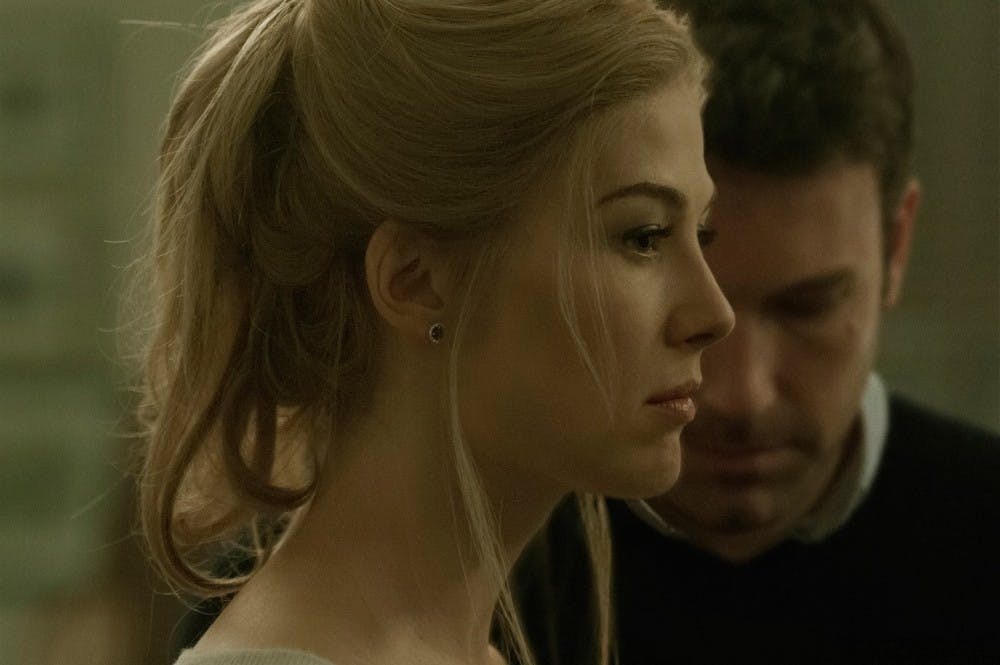We generally don’t ask a lot from thrillers. As long as the direction is competent, the acting is functional and the plot is full of twists and turns, you have yourself a worthy entry into the genre. Luckily, “Gone Girl” is much more than that.
Adapted by David Fincher (“Fight Club,” “The Social Network”), “Gone Girl,” originally a book by Gillian Flynn, is an utterly engrossing, twisty drama. To give more than the starting premise – Amy Dunne (Rosamund Pike) goes missing, and her husband Nick (Ben Affleck) comes under close media scrutiny for her disappearance – would be a disservice. The film zigs and zags hypnotically, and Fincher’s crisp, clear directing makes it impossible to look away.
You’ll be glued to the screen for every moment of the 149 minute running time, which is quite the feat. “Gone Girl” is one of the most captivating movies to hit theaters in a long time.
Fincher’s precise, almost clinical style suits the film especially well. As a director, he’s always been more interested in the how than the why – his characters are often hard to read and defined more by their actions than their intentions. This makes him especially adept at telling the movie's story, from its mysterious protagonists to its active, windy plot.
However, Fincher’s most important contribution is stopping the film from going off the rails. “Gone Girl” hits lurid, pulpy heights, but Fincher manages to keep it all under control. Under another director, “Gone Girl” might have seemed ridiculous at points, but Fincher’s reward for walking the razor edge is a spellbinding, gasp-inducing “oh s---” thriller.
Steadied by on-point directing, it’s the acting that really lets “Gone Girl” shine. Affleck’s skillful turn as the movie’s often-unlikeable leading man can’t really be called a revelation at this point, but it’s surprising all the same to see how good he is in the film. Nick is a complex character, and Affleck plays every turn convincingly, especially the smugness and selfishness. Finally, Affleck’s punchable face has found a home.
Both Tyler Perry and Neil Patrick Harris are memorable in their minor roles, but it’s Rosamund Pike who truly stands out. Her performance as Amy is inspired and completely electrifying, and she delivers the film’s central performance with panache.
That leaves the script, which is probably the least impressive part of “Gone Girl.” That’s not to say it’s bad – its unique structure and narrative gutsiness are at the core of the film’s appeal – but the dialogue isn’t what makes “Gone Girl” great, it's the directing and acting. Its theme of gender division is often interesting, but it’s in the rare moments when it presents Nick and Amy as gendered archetypes that it stumbles – these aren’t characters that should be representing any gender.
These script problems are only a quibble, though – “Gone Girl” is bold, exciting filmmaking, a cinematic joyride from start to unnerving finish. Its final moments, cynical and surprising, and disturbingly appropriate, will linger long after the movie ends. “Gone Girl” is a shot of a movie, and it denies you a chaser.

